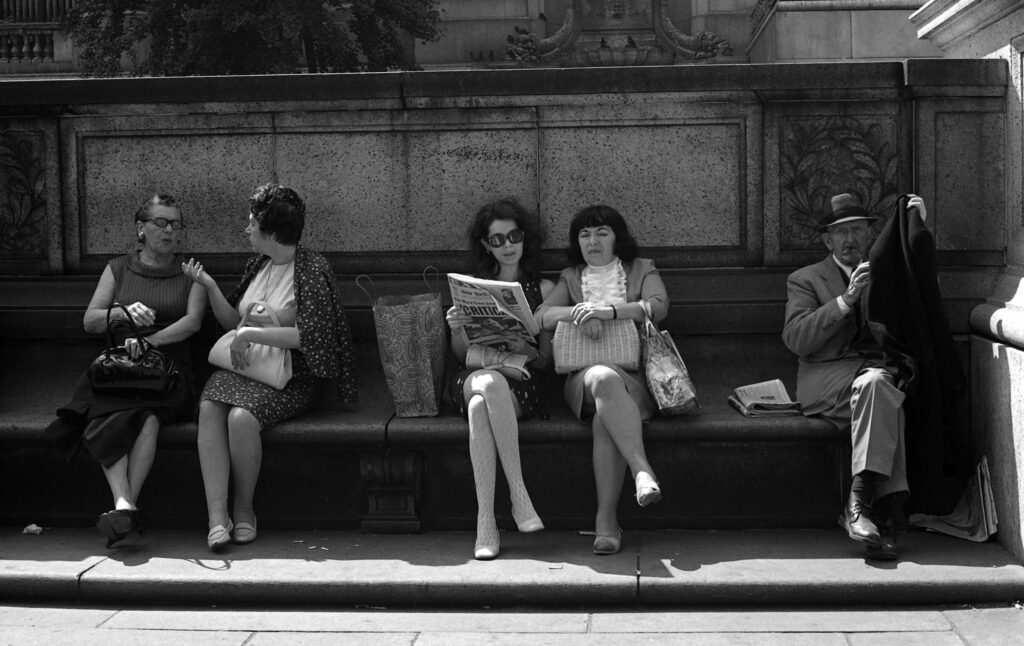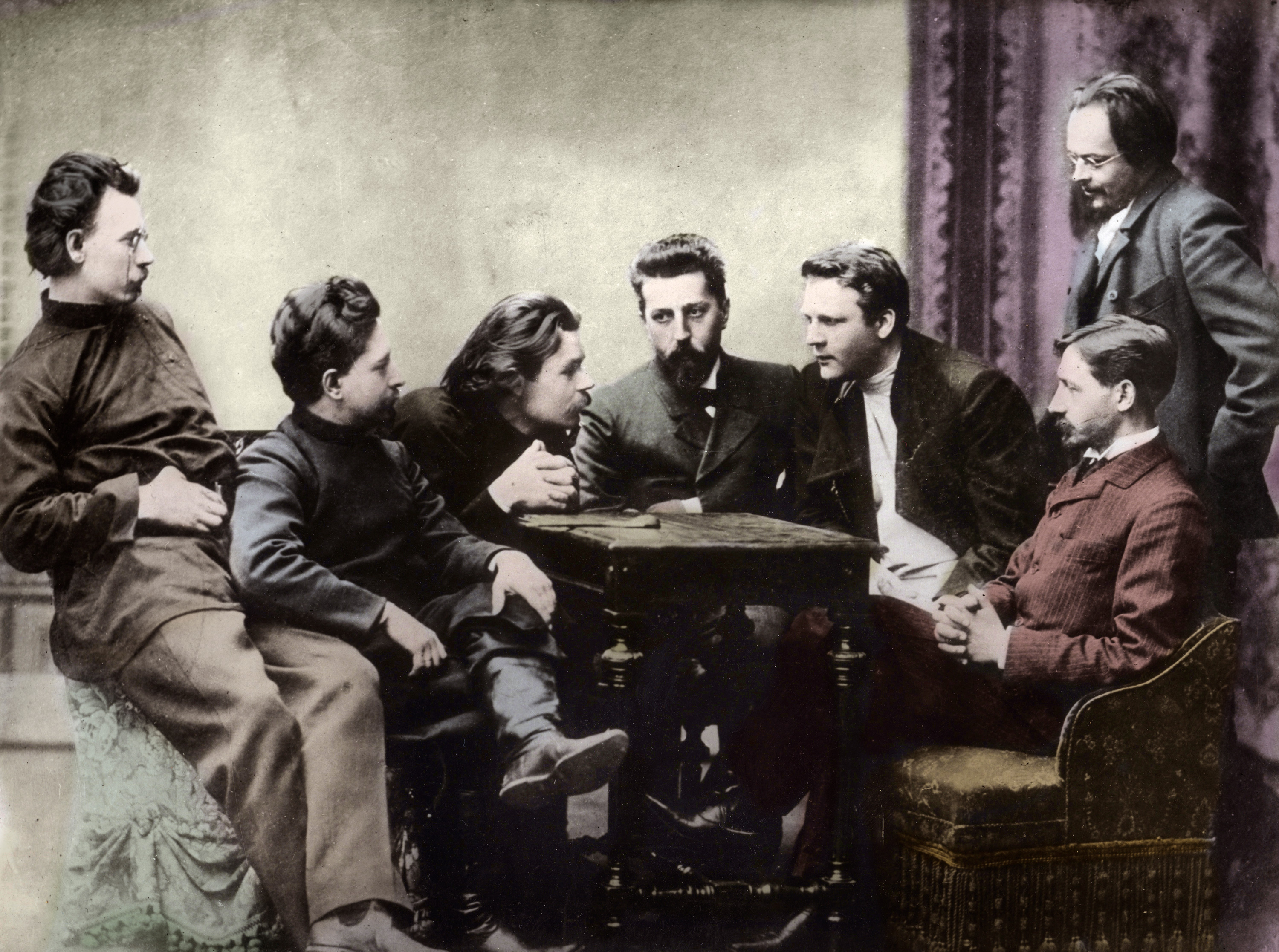Leonid Ragozin has long been an unsentimental observer of the Russian political scene. A journalist in exile, Ragozin has an unusual talent for zeroing in on social contradictions and double standards. His second piece for The Ideas Letter, a critical dissection of the Russian intelligentsia, looks at many of that class’s own contradictions—even its rank hypocrisy.
Our second commissioned essay, from the writer Sarah Stein Lubrano, questions some of the assumptions that underlie today’s supposed crisis of loneliness. Stein Lubrano parses the concept of “social atrophy” to make sense of the structural problem of isolation—and argue that social engagement remains vital for the health of an individual, and a democracy.
Our curated content commences with an essay from the fine Brazilian publication Revista Rosa. The late Ruy Fausto unpacks concepts we thought we knew—illiberalism, neoliberalism, fascism—and re-sorts them conceptually in a way that pays intellectual dividends.
Then Zaheer Baber, in Capital & Class, looks at the so-called neoliberal university and finds many of its origins presciently conceived decades ago in the sociological imagination of the maverick C. Wright Mills.
Sumantra Maisa follows with a question: Why is today’s new Right largely absent of any cultural commitments or aesthetic sense? Why do conservatives of lore have such better taste?
Finishing with a podcast, we feature Alana Lentin and her reflections about new racial regimes in contemporary society, and the power they maintain in contrast with racial regimes of the past.
Our musical selections for Issue 45 are twofold. First, that great short-lived quartet of former bandmates of Ornette Coleman, Old and New Dreams, laid down on their first date a track in equal measure haunting and beautiful. Entitled “Chairman Mao,” and recorded in 1977, a year after the Chinese leader’s death (and the conclusion of China’s twisted Cultural Revolution), it inspires the question: Why were some participants in jazz’s great avant-garde attracted to Chinese socialism? A subject for another day.
We also include a track from the recently passed bard-singer-satirist Tom Lehrer. Here is his genius tribute to Gustav Mahler’s wife, Alma, introduced and sung live in 1965.
—Leonard Benardo, senior vice president at the Open Society Foundations
Flights of the Intelligentsia

Leonid Ragozin
The Ideas Letter
Essay
Ragozin reflects on the contradictions of the Russian intelligentsia, a class he describes as marked by a millenarian and apocalyptic worldview, Western idealism, and self-loathing. Placing Putin’s invasion of Ukraine and the resulting exodus of Russian intellectuals in the broader context of the intelligentsia’s historical evolution—from progressive aristocrats to Soviet dissidents to neoliberal reformers—he highlights its recurring pattern of moral absolutism, escape, and alienation from the broader population, as well as its uneasy entanglement with both Western supremacism and authoritarianism.
“No matter how they viewed the masses, no matter the current intellectual celebrity who adorned their banners—Rousseau, Marx or Hayek—members of the Russian intelligentsia have largely retained that self-perception of being agents of civilization in a land of savages. Not any civilization, but specifically that which developed and flourished in Western Europe and North America. The yawning gap between the educated class and common folks isn’t historically unique to Russia, but in Russia, with its peripheral and—occasionally—pariah status in Europe, it would always harbor a geopolitical dimension.”
The Perils of Social Atrophy

Sarah Stein Lubrano
The Ideas Letter
Essay
Societal disconnection is often framed as a “loneliness epidemic,” but the crisis runs much deeper: It’s not just that we feel alone, but also that prolonged isolation is rewiring our brains, eroding our capacity for trust, social relations, and even self-awareness, argues Stein Lubrano. Social atrophy is not simply a lack of contact, but a neurological and cultural transformation that makes us less able and less inclined to reconnect, fueling everything from personal malaise to reactionary politics. Addressing it requires not only individual effort but collective, structural change to rebuild the social fabric on which human flourishing depends.
“The most crucial point about social atrophy is that it changes and harms human experience, and diminishes key aspects of human potential. The idea of social atrophy provides a very different political critique of isolation than other frameworks like ‘social capital’ or loneliness. In the framework of ‘social capital,’ those without social bonds are effectively poorer: they are facing a problem of inequality that also harms the political body as a whole. This framing of the problem as inequality and relative deficit fits with politically liberal frameworks in which most problems can be boiled down to inequality or injustice. Yet while there may be real inequalities related to social atrophy (poorer people have far less access to leisure spaces and may specifically have less time with friends), the problem of social atrophy is not just one of an unjust imbalance between groups or even a sort of general impoverishment. Those experiencing social atrophy are also effectively misshapen—out of alignment with what a good human life entails, and unable to see the world as they would need to in order to escape this dangerous cycle.”
Conservative Revolution and Neoliberalism
Ruy Fausto
Revista Rosa
Essay
Fausto argues that contemporary illiberalism is not a fusion of conservatism and neoliberalism but a distinct ideological project that rejects neoliberal individualism while embracing authoritarian tendencies. Tracing its roots to early anti-liberal reactions to modernity, Fausto distinguishes this new movement from both classical fascism and economic neoliberalism. He sees it as a break from the liberal-democratic consensus, revealing a novel form of authoritarian capitalism.
“Like fascisms, and unlike conservative movements that, in one way or another, dream of a return to the past, illiberalisms want to incorporate democracy into their movement. … To some extent, illiberalism already incorporates democratic individualism, insofar as the economic policies they propose, as we have seen, demonstrate certain qualities of neoliberalism (even though they are combined with elements that are foreign or opposed to it). Nonetheless, in a manner unfamiliar to fascism, they claim the democratic principle of majority rule. There is also an individualistic quality to this, and they generally have a relationship to democracy that is entirely different from what fascisms have shown. Considering how they are based on electoral victories, we have seen where they try to stake their legitimacy, a legitimacy that is in turn rendered absolute in order to block all transitions of power. In all of this, illiberalism seeks a caricatured way to take advantage of the innovations instated by democracy. It’s this demand for democratic legitimacy (even if it is illusory, though not fictitious) that lets us to distinguish current regimes from ‘derived’ fascisms.”
“They Talk and Talk, They Sell and Sell … the Victory of the Technician over the Intellectual”
C. Wright Mills and the Neoliberal University
Zaheer Baber
Capital & Class
Essay
The sociologist C. Wright Mills foresightedly warned against the emerging “neoliberal” bureaucratization of universities in the 1950s, according to Baber, by drawing creatively on the critical tradition of Marx, Weber, and Veblen, among others, to reflect on contemporary transformations in academia.
“He critically analysed the emergence and consolidation of ‘military capitalism’, the development of the postwar American empire, the crystallization of ‘the power elite’ and the far-reaching consequences of these structural changes for the increasing alienation of the mental labourers from the means as well as the products of knowledge production. Distilling the spirit of the classical sociologists for whom critical analyses of the contradictions and conflicts of society with an eye for possible trends and trajectories of progressive social change was paramount, Mills deftly braided sociology with trenchant social critique to pointedly reject the positivist, ‘physics envy’ laden—derived from a largely imagined image of Physics— corporatist, technocratic paradigms that were already taking hold in the universities of his time.”
The New Right’s Hollow Aesthetic
Sumantra Maitra
Engelsberg Ideas
Essay
The new populist right suffers from a profound cultural void that is less about material factors like consumer habits than about deeper philosophical incompatibilities. While it idealizes the aesthetics and values of past imperial eras, it lacks the structural traits—worldliness, institutionalism, and vision—required to embody them. Ironically, it is liberal cosmopolitans, despite their recent loss of political direction and identity, who remain more capable of defending both progress and cultural heritage.
“The aesthetic desires of the new right lack any coherent philosophical instinct. It is mostly vibe: crusades are good, so is the Enlightenment. The historical aptitude of the ‘Tech-Right’ elite of our times, for example, is shallower than the first two paragraphs of any Wikipedia page. In a bid to defend and preserve what it claims to be ‘western civilisation’, it peppers over the centuries old deep cultural, ethnic, and philosophical divisions within the West. It is temperamentally Huntingtonian and civilisational in essence, and therefore intensely ideological and ahistoric. It charts a single continuum of Judeo-Christian ‘European’ heritage that defies any actual historic record. … The reality is different, the intra-ethnic rivalry within Europe is not in any way similar to what a dissident new right ‘online historian’ might imagine.”
“Arrested in the Office of DEI”
On the New Racial Regime with Alana Lentin
Millennials Are Killing Capitalism
Podcast
Lentin discusses her new book The Racial Regime: Recalibrations of White Supremacy, which builds on Cedric Robinson’s concept to analyze how white supremacy continually restructures itself in response to resistance. She examines the global backlash against critical race theory and the ideological role of Zionism and the war on antisemitism in reasserting racial rule, especially in the wake of Israel’s actions in Gaza after October 7, 2023. Lentin argues that racial regimes are not static but persist and evolve thanks to their own confusion, constant adaptation, and the co-optation of progressive language: Their internal contradictions are a source of both fragility and renewed power.
“The racial regime is never completely new. Rather, it is renewed or restitched from, as [Cedric Robinson] puts it, old cloth and new together. That’s the power of it, because it uses things that are familiar to us and stitches them together and makes them relevant to processes in the present—and essentially confuses us.”
